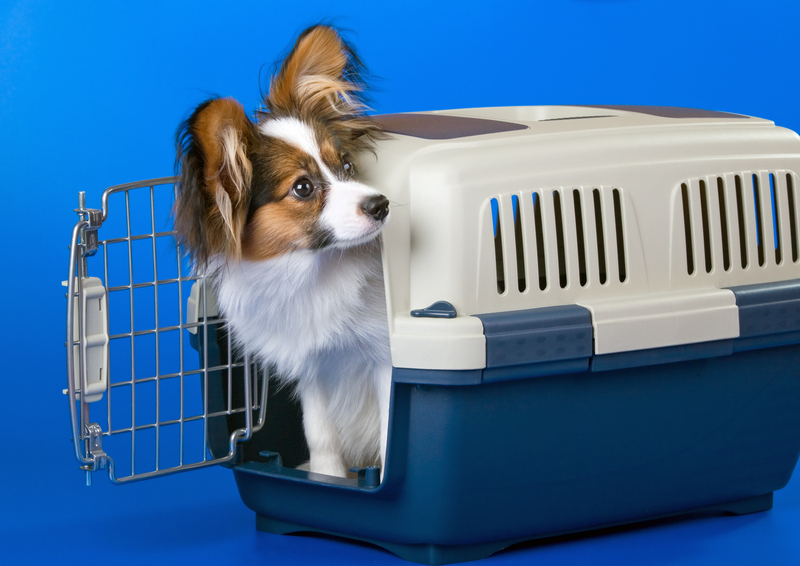Learn How to Store a Freezer Correctly When Not Needed
Posted on 03/06/2025
Learn How to Store a Freezer Correctly When Not Needed: Step-by-Step Guide
A freezer is an essential appliance in modern homes, but there may come times when you don't need it for an extended period--perhaps during a move, a renovation, or seasonal downsizing. Learning how to store your freezer correctly when not in use is vital to preserve its lifespan, maintain safety, and ensure it runs efficiently when you need it again. In this comprehensive guide, you'll discover best practices, must-dos, and expert tips for storing a freezer properly.
Why Is Proper Freezer Storage Important?
Understanding why proper storage for your freezer is so crucial can save you time, money, and headaches in the future. Poor storage practices can lead to mold growth, mechanical issues, and unwelcome odors. Additionally, storing your freezer incorrectly may invalidate warranty agreements or cause irreversible damage, ultimately shortening its usable life.
- Prevents interior mold and mildew.
- Maintains appliance efficiency and lifespan.
- Avoids unpleasant odors building up inside.
- Ensures easier reinstallation and re-use.
- Keeps your home or storage environment safe.

When to Consider Storing Your Freezer
If you're unsure whether to keep your freezer plugged in or to put it into storage, review these common scenarios:
- Relocating to a new home or apartment.
- Remodeling your kitchen or storage area.
- Seasonal changes, such as during summer if you use a freezer only in winter.
- Downsizing and needing to temporarily remove unused appliances.
- Extended travel or absence from home.
Step-by-Step Instructions: How to Store a Freezer Correctly
Follow these detailed steps to store your freezer safely and efficiently when it's not needed:
1. Unplug and Empty Your Freezer
- Turn off and unplug the appliance. Always unplug your freezer before starting the cleaning or storage process.
- Remove all food items. Dispose of expired or perishable goods and transfer anything you want to keep to another freezer or cooler temporarily.
- Extract removable parts. Remove shelves, bins, and drawers to clean separately and prevent damage during storage.
2. Deep Clean the Interior and Exterior
- Thaw the freezer if needed. If there is ice build-up, allow it to thaw naturally with the door open. Wipe away excess water as it melts.
- Wash every surface. Use a mild cleaning solution (warm water and baking soda works wonders) to clean the inside and outside surfaces.
- Dry thoroughly. Leaving moisture can lead to mold and unpleasant odors. Wipe all surfaces with a dry cloth.
- Clean and dry removal parts separately. Ensure shelves and drawers are completely dry before reassembling or packing.
3. Prevent Mildew, Mold, and Odor Build-up
- Prop open the freezer door. Leaving the door ajar allows air to circulate, preventing mustiness. Use a spacer or towel to keep the door open 1-2 inches.
- Place baking soda inside. You can leave an open box of baking soda or a moisture absorber inside the freezer to combat odors.
- Avoid sealing the freezer tightly during storage. Complete closure can encourage mold growth. Ventilation is key!
4. Choose the Right Storage Location
- Find a dry, well-ventilated spot. Basements, garages, or storage units work, but they should not be excessively damp or humid.
- Avoid direct sunlight and extreme temperatures. Extreme heat or freezing temperatures can damage the appliance's internal components and seals.
- Keep the freezer upright. Storing the freezer on its side can cause compressor oil to flow into cooling lines, leading to damage.
- Ensure the appliance is not at risk of being bumped or knocked over.
5. Prepare the Freezer for Transport (Optional)
If you're storing your freezer away from home or moving it, follow these transport preparation tips:
- Secure doors. Use tape or moving straps to hold doors closed, but do not seal air-tight.
- Protect exterior surfaces. Use padded blankets or bubble wrap to minimize scratches and dents.
- Transport upright whenever possible. This protects the cooling components and avoids oil pooling.
How to Store a Freezer: Additional Expert Tips and Variations
There are multiple variations in freezers--chest, upright, compact, and commercial models--and each may require slight adjustments in storage practices:
- Chest Freezers: These often have heavier lids; ensure they are securely supported if left open to prevent accidental closure.
- Upright Freezers: Doors must be kept slightly open; prop with a block of wood or towel for continuous airflow.
- Compact Freezers: Smaller models are easier to transport; always check manufacturer's manual for specific instructions.
- Manual Defrost vs. Frost-Free: Manual units require complete thawing; frost-free models also benefit from deep drying to avoid odors.
The Dos and Don'ts of Freezer Storage
Do:
- Clean and dry thoroughly before storing
- Store upright in a cool, dry environment
- Leave the door slightly open
- Protect with a loose cover to prevent dust, but still allow ventilation
- Label as "Out of Use" if stored in communal or shared spaces
Don't:
- Store in areas prone to flooding or heavy dampness
- Seal the door completely shut
- Lay on its back or side for long periods
- Store in direct sunlight or areas with temperature extremes
How Long Can You Store a Freezer When Not In Use?
With proper preparation, a freezer can remain in storage for months or even years. It's best to check on your freezer periodically:
- Open the door to ensure no odor or mold has developed.
- Replace baking soda or moisture absorbers every 2-3 months.
- Inspect the exterior for signs of rust or pests.
If you ever notice a musty smell, wipe down the interior again and leave the door open for several more days. Consistent monitoring ensures your freezer stays ready for action.
Seasonal Storage:
If you store your freezer for only part of the year (for example, just over the summer), follow the same protocols outlined here. Even short-term storage can cause mold or component issues without proper care.
Prepping Your Freezer for Re-use
After proper storage, getting your freezer back into service is simple:
- Move the appliance to its final location and ensure it's upright.
- Allow it to sit unplugged for at least 4 hours (24 hours if it was transported lying down), so oils settle back into the compressor.
- Clean the interior one more time to remove any dust or residual odors.
- Plug in and allow it to reach the desired temperature before loading food.
_Bonus Tip: If you detect any strange noises, weak cooling, or irregular operation after storage, consult the manufacturer's manual or schedule a maintenance check before stocking with food._
Common Mistakes to Avoid When Storing a Freezer
A few little oversights can turn your effort upside down. Avoid these frequent errors:
- Forgetting to dry. Moisture left inside is a fast track to mold and rust.
- Leaving food or crumbs behind. This can attract pests and create stubborn odors.
- Taping the door closed airtight. Stale air breeds mildew.
- Not checking the freezer during storage. Occasional inspections help head off trouble.
- Improper handling during transport. Always keep it upright and avoid sharp jolts.
Environmental and Safety Considerations
Freezers contain refrigerants and electrical components that must be protected. Storing a freezer safely means:
- Never storing near flammable materials.
- Preventing children or pets from crawling inside. Tape a warning note to the appliance or remove the door if required by local safety codes.
- Recycling or disposing of non-working freezers at approved facilities.

Frequently Asked Questions About Storing Freezers
Q: Can you store a freezer unplugged?
Absolutely. As long as you clean and dry it thoroughly, leave the door slightly open, and store it in a dry place, storing an unplugged freezer is perfectly safe.
Q: Should you cover your freezer during storage?
It's smart to cover your freezer with a breathable material (like a cotton sheet) to prevent dust accumulation while allowing air circulation. Avoid plastic tarps that can trap moisture.
Q: Is it safe to store a freezer in the garage?
Yes, provided the garage remains dry and is not subject to temperature extremes. A climate-controlled storage space is ideal.
Q: How do you prevent smells in a stored freezer?
Remove all food, clean thoroughly, dry, and use baking soda or moisture absorbers. Always prop the door open during storage.
Conclusion: Protect Your Freezer With Proper Storage
Whether you're downsizing, renovating, or between uses, knowing how to store your freezer correctly when not needed ensures optimal performance and a longer lifespan. With thorough cleaning, upright positioning, moisture prevention, and routine checks, your freezer will stay fresh and ready for years to come. Stay proactive, avoid mold and odors, and protect your investment with each storage cycle!
Follow these guidelines and your freezer will serve you well, no matter how long the pause between uses.
Latest Posts
Transform Your Move: Declutter Like a Pro
Achieve a Calmer Moving Experience
Checklist for Cleaning Your Home Before Moving Day



